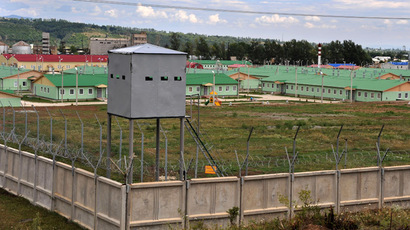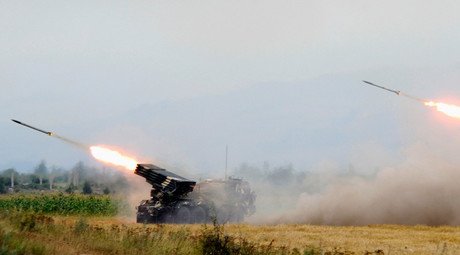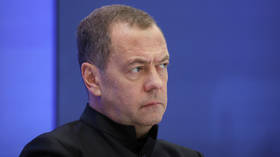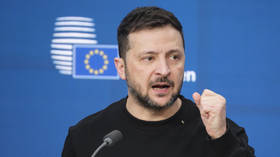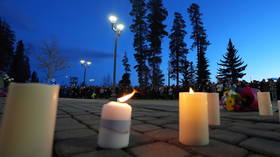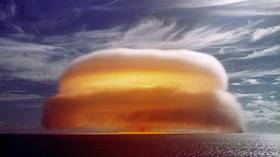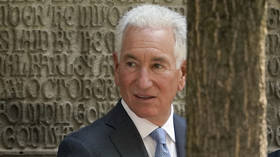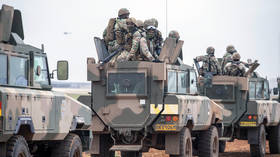South Ossetia, former part of Georgia, to hold ‘special’ referendum to join Russia
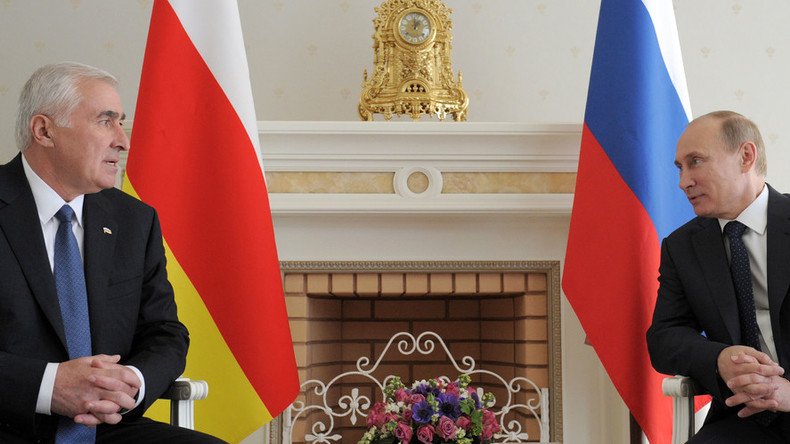
South Ossetia’s president said the small country wants to hold a referendum of “special form” to join Russia as one of its regions. The move is to help unite the once separated Ossetian people and safeguard it from various threats for decades to come.
President of South Ossetia, Leonid Tibilov, said in his address to the republic’s parliament on Friday that a roadmap for the referendum would be worked out within a year.
“We are worried by the worsening situation in the world, events in Ukraine, Syria and the entire Middle East as well as NATO’s move towards Russia’s borders, and also by militarist anti-Russian and anti-Ossetian rhetoric of our southern neighbors,” Tibilov was quoted as saying by TASS.
The leader also said it is South Ossetia's "ancient dream" to reunite with Russia and the separated Ossetian people. Tibilov referred to North Ossetia, which is part of the Russian Federation.
“As we understand that this issue is complicated and delicate, and do not want to make troubles in an international arena for our strategic partner, I believe this referendum has to be held in a special form,” he added.
It would involve introducing constitutional amendments enabling South Ossetia’s president to ask Moscow for integrating the republic as part of Russia. The current official name – Republic of South Ossetia – would also be swapped for “Alania,” to ease unification with the Russian region of North Ossetia-Alania.
The president stressed this is the only way the republic “will obtain a long-term guarantee – lasting for decades and hundreds of years – of its security and peaceful development.”
While the referendum is to be discussed with Russia, Moscow will not have to respond to the request immediately, Tibilov reiterated.
Formerly part of Soviet Georgia, South Ossetia declared independence in 1990 amid rising ethnicity-based violence against Ossetians. The declaration of independence led to the first Georgian-South Ossetian War that broke out in 1991. The war, unleashed by Georgia’s nationalist leadership, claimed hundreds of lives and forced around 100,000 Ossetians to flee from their homes.
“I believe it is important to demonstrate the genuine face of ‘Georgian democracy’ to the international community,” Tibilov added. “I therefore address to the parliament and request to prepare and initiate hearings in the State Duma of Russia to recognize the genocide of the South Ossetian people committed by Georgia in 1920, 1989-1991 and 2008.”
The 1991 violence was ended in 1992 by a joint peacekeeping task force comprising Russian, South Ossetian and Georgian elements, but did not become lasting.
Georgia vs. South Ossetia: roots of a 100-year conflict
On August 8, 2008, Georgia’s Western-trained army and air Force launched a massive invasion in South Ossetia, aiming to seize the republic’s capital Tskhinval in hours. The small city came under overwhelming artillery and rocket fire, believed to be deliberately targeting civilian objects as well as a Russian peacekeepers’ garrison. Russia responded within several hours and deployed ground troops, air force and paratrooper units, forcing Georgia to cease hostilities by August 12.
Up to 2,000 civilians and 71 Russian peacekeepers lost their lives in the 2008 South Ossetian War.
Shortly after, Moscow recognized South Ossetia and Abkhazia, another breakaway Soviet Georgian republic, as independent, establishing due diplomatic and military ties. The act of recognition created unprecedented pressure on Russia from the West and NATO, calling it a violation of Georgia’s “territorial integrity.”
